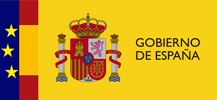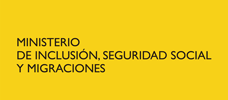- Home >
- Links of interest
Links of interest
International
-

The United Nations is an international organization founded in 1945. It is currently made up of 193 Member States. The mission and work of the United Nations are guided by the purposes and principles contained in its founding Charter.
-

United Nations Educational, Scientific and Cultural Organization - UNESCO
UNESCO is the United Nations Educational, Scientific and Cultural Organization. It seeks to build peace through international cooperation in Education, the Sciences and Culture. UNESCO's programmes contribute to the achievement of the Sustainable Development Goals defined in Agenda 2030, adopted by the UN General Assembly in 2015.
-

International Labour Organization - (OLT)
The only tripartite U.N. agency, since 1919 the ILO brings together governments, employers and workers of 187 member States , to set labour standards, develop policies and devise programmes promoting decent work for all women and men.
European
-

On these pages you can find practical information about coming to work or study in the EU for more than 90 days and on how to join your family in the EU. If you already are in the EU and you would like to know more about your rights or you would like to move from one EU country to another, you can also find relevant information on this Portal.
-

European Web Site on Integration
Migrant Integration Information and good practices.
-

The Commission's Directorate-General for Employment, Social Affairs and Inclusion (DG EMPL) is responsible for EU policy on employment, social affairs, skills, labour mobility and the related EU funding. programmes.
-

The European Commission against Racism and Intolerance - ECRI
The European Commission against Racism and Intolerance (ECRI) is a human rights monitoring body which specialises in questions relating to the fight against racism, discrimination (on grounds of “race”, ethnic/national origin, colour, citizenship, religion, language, sexual orientation and gender identity), xenophobia, antisemitism and intolerance.
ECRI was set up by the first Summit of Heads of State and Government of the member states of the Council of Europe in 1993 and became operational in 1994. As ECRI marks 25 years of combating racism and intolerance, current trends show that these are still persistent problems in European societies that require renewed efforts to be overcome.
ECRI is composed of 47 members appointed on the basis of their independence, impartiality, moral authority and expertise in dealing with issues of racism, discrimination, xenophobia, antisemitism and intolerance. Each Council of Europe member state appoints one person to serve as a member of ECRI. -

The European Network of Equality Bodies - EQUINET
Equinet is the European Network of Equality Bodies, a membership organisation bringing together 49 equality bodies from 36 European countries including all EU Member States. Equinet promotes equality in Europe by supporting and enabling the work of national equality bodies. It supports equality bodies to be independent and effective catalysts for more equal societies.
-

Respect for human rights and dignity, together with the principles of freedom, democracy, equality and the rule of law, are values common to all European Union (EU) countries. They also guide the EU's action both inside and outside its borders.
European action in this area is based on the Treaty on the Functioning of the European Union to which the Charter of Fundamental Rights, proclaimed in 2000, is annexed. Since 2009, the Charter has been legally binding on the EU institutions and national governments (when they are implementing EU law). The Charter is consistent with the European Convention on Human Rights (adopted in the framework of the Council of Europe). However, it does not, as such, establish any new rights but serves to gather together existing rights that had been scattered between different sources.
Spanish
-

Blog of the National Center for Innovation and Educational Research.
-

Ministry of Education and Professional Training. School cohabitation

This website is a useful tool with several means for schools, teachers, students and families. Among other resources, it appears as a source for consultation of the current legislative framework both at a national and Autonomous Communities level, publications, materials, action protocols, seminars, awards and school cohabitation plans.
-

Ministry of Interior. Hate Crimes

Challenged by the important task of providing a proper police assistance and protection to the victims or witnesses of hate crimes motivated by race, anti-Semitic or other ideologies, religion or beliefs, sexual orientation, illness or disability and other discriminatory actions, it is set forth the obligation to offer all the necessary information to the people affected as to be able to act before an incident of this kind.
-

This Plan in launched in 2007 in a collaborative context between the Ministry of Education and Science and the Ministry of Interior, with the aim of responding in a coordinated and efficient way to matters related with the security of minors and teenagers in the school and its surroundings. Through this, police cooperation with the education authorities is strengthened in relation to its actions to improve the cohabitation and security in the school sphere.
-

Ministry of Justice. Pluralism and Cohabitation Foundation

The Pluralism and Cohabitation Foundation is an entity from the state public sector, created by agreement from the Council of Ministers from October 15th 2004 by proposal from the Ministry of Justice. Its mains task is to promote religious freedom through cooperation with the minority creeds and it is a space of investigation, debate and implementation of public policies in relation with freedom of religion and conscience.
-

Ministry of Health, Consumer Affairs and Social Welfare. INJUVE. Campaign “I am you, get involved”

The awareness campaign under the motto “I am you, get involved” aims at the promotion of positive attitudes before diversity and against discrimination amongst teenagers in between the ages of 13 and 17 years old.
-

Website with supporting and prevention resources in cases of gender-based violence (WRAP), it constitutes an integrated service in the website of the Ministry of Health, Consumer Affairs and Social Welfare which allows the identification of the different resources (police, judicial and informative, assistance and counseling) over active maps which public administrations and social entities have made available for the citizens and the victims of gender-based violence.
-

Ministry of Labour, Migrations & Social Security. Forum for the Social Integration of Migrants

It constitutes an organism of consultation, information and counseling in the sphere of integration of migrants. Its main objective is promoting the participation and integration of immigrants within Spanish society by proposing, informing and channeling actions towards said goals.
Civil Society
-

NGO whose purpose is to improve the living conditions of those people in the most vulnerable positions in our society and, specially, those who are part of the communities of refugees, migrants and people who are at risk of social exclusion or who are already in this situation.
-

Independent organization which provides answers to social dynamics related to migration and with the processes of social exclusion. It serves as a practical and theoretical guideline in the application of transversal policies for interculturality, management of diversity, gender equality, social cohesion, local development and co-development, acting on a territorial basis.
-

Movimiento contra la Intolerancia

Participatory movement which works against the Intolerance, Racism and Violence. It is, essentially, an investment on Solidarity, Democratic Coexistence, Tolerance and the defense of human rights.
-

SOS Racismo Madrid launches a platform for the denunciation and identification of every-day micro-racist practices, as to generate the necessary debate about this kind of discrimination and to denounce the cases with a social perspective.





